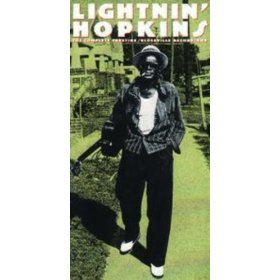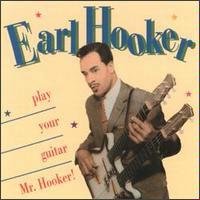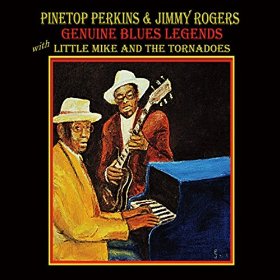And Friends
Telarc 83537
1- All Your Love; 2 - Rock Me Baby; 3 - I'll Take Care of You/ Lonely Avenue; 4 - Mighty Fine Boogie/ 5 - One More Mile/ 6 - Bad Boy/ 7 - Twenty-five Days/ 8- No More/ 9- Last Night/ 10 - New Vietnam Blues/ 11 - Marie/ 12 - Blue and Lonesome/ 13 -Looking Good. 68:17
Earl, g; Dave Maxwell, p (exc-13); Jimmy Mouradian, b (exc-3, 10, 13); Levon Helm, d (exc. -13); Luther 'Guitar Junior' Johnson, -1, 6 vcl, g; Kim Wilson, vcl, hca - 2, 5, 8, 9, 12; James Cotton, hca - 4, 5, 8; Irma Thomas, vcl -3, 10; Michael 'Mudcat' Ward, b -3, 10; Paul Marrochello, g -10; Tim 'Juice' O'Connor, g -10. Woodstock, NY. Oct. 30, 31 and Nov. 1, 2000.
This is an all star session led by guitarist Ronnie Earl on Telarc. Those heard on this include Luther’ Guitar Junior’ Johnson, Levon Helm, David Maxwell, Irma Thomas, James Cotton and Kim Wilson for a program of blues mostly performed in the Chicago blues vein. While several recent albums have displayed Earl’s very interesting fusion of jazz and blues, this album marks a return to a straight blues setting. Earl is joined by an excellent band that includes piano from Dave Maxwell and drums by Levon Helm of The Band. Vocals are shared by Kim Wilson, Luther ‘Guitar Junior’ Johnson and Irma Thomas. In addition to several tracks featuring both of their harmonicas, there is a harmonica duet by Wilson and Cotton.
Dave Maxwell strongly evokes the spirit of Otis Spann on his feature "Marie." Two instrumentals serve to spotlight Earl, one being the short closing rendition of Magic Sam’s "Lookin’ Good." Luther Johnson contributes a top notch version of Magic Sam’s "All Your Love." Irma Thomas does a wonderful rendition of Bobby Bland’s "I’ll Take Care of You," which segues into Ray Charles’ "Lonely Avenue." Her other vocal is "New Vietnam Blues," a updating of Junior Wells’ recording, "Viet Cong Blues," reflecting the social changes of the past three decades. Kim Wilson shines as a vocalist on "Rock Me Baby" and James Cotton’s "One More Mile," one of the titles that have both Cotton and Wilson on harmonica.
There is terrific playing throughout, whether the interplay between the harmonicas of Cotton and Wilson on "Mighty Fine Boogie," Earl’s evocation of Mel Brown and Buddy Guy on the Irma Thomas vocals, and Maxwell’s consistently solid piano. There are a couple places where Earl’s playing strikes one as a bit busy (particularly "All Your Love"), but his playing never overwhelms the vocal. And Earl quite capably plays the supportive role on the tracks with Cotton and Wilson, adding some nice fills. This is quite an enjoyable blues album.
This review was written for Cadence from who I wrote this review in 2001. I have inserted paragraph breaks. Here is Luther 'Guitar Jr." Johnson and Ronnie Earl performing together.

























